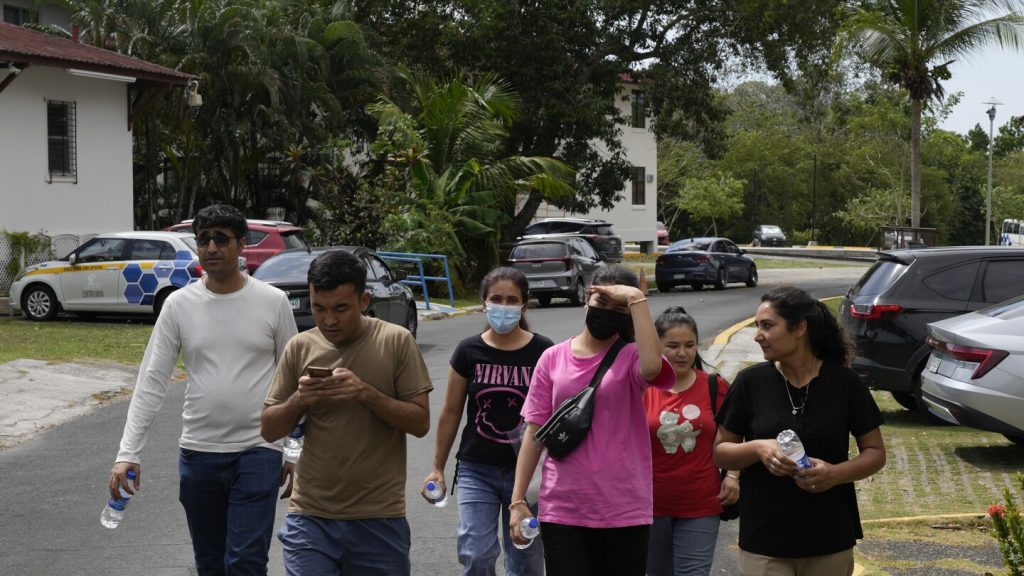PANAMA CITY (AP) — Migrants from countries such as Afghanistan, Russia, Iran, and China, who have been deported from the United States, are now stranded in Panama. This week, they desperately knocked on the doors of various embassies and consulates in hopes of finding asylum in any nation willing to accept them.
Once the center of global humanitarian attention, these deported individuals are now expressing increasing concern that, without access to legal and humanitarian support or a clear path forward from officials, they risk being forgotten. “After this, we don’t know what we’ll do,” stated 29-year-old Hayatullah Omagh, who escaped Afghanistan following the Taliban’s rise to power in 2022.
In February, nearly 300 individuals from predominantly Asian nations were deported by the United States to Panama. Initially, Panama was intended to serve as a temporary stop for migrants that the Trump administration had difficulty deporting to other nations. While some chose to return home voluntarily from Panama, many refused due to fears of persecution and were instead redirected to a remote camp in the treacherous Darien jungle for several weeks.
Earlier this month, Panamanian authorities released these migrants from the camp but instructed them to leave Panama within a month. Though the government claimed that they rejected help from international organizations, those stranded—often with little money and no knowledge of the local language—have found it difficult to navigate their circumstances.
Door-to-Door Asylum Seeking
This Tuesday, a group of about a dozen migrants began visiting foreign missions in Panama City, including embassies from Canada and England as well as consulates from Switzerland and Australia, to initiate asylum requests. However, they were often turned away or informed that they would need to contact embassies via email or phone, which yielded either no feedback or vague replies indicating no assistance could be provided.
Despite their travels halfway around the world, those migrants now find themselves in Panama—often a place they had previously traversed during their journey to the U.S.—with their futures uncertain. Many indicated a willingness to seek asylum in Panama, though they were informed by international aid groups and Panamanian officials that such requests would likely be denied.
With the Trump administration’s actions effectively sealing legal routes to the U.S. while escalating deportations, the path ahead for these migrants remains obstructed. Álvaro Botero, a representative of the Inter-American Commission on Human Rights, stated the dire need for these individuals not to be overlooked, emphasizing their lack of choice in finding themselves in Panama and their grim prospects for the future.
As individuals like Omagh, who, as a Hazara atheist, faces certain death if returned to Afghanistan, and Aleksandr Surgin, a Russian dissent who voices opposition against his government, continue to linger in uncertainty, they remain hopeful yet despondent, fearful that their pleas are falling on deaf ears. The reality of their situation echoes the sentiment of hopelessness, revealing a critical humanitarian issue in dire need of resolution.



